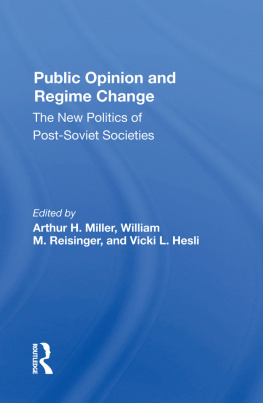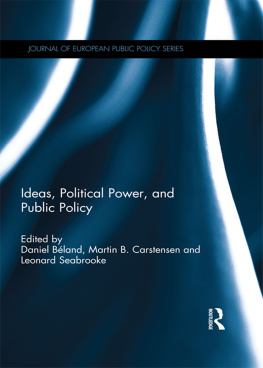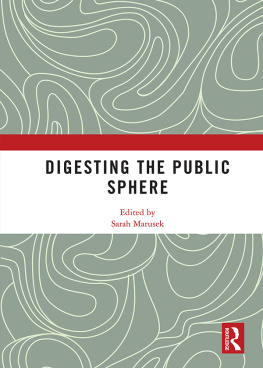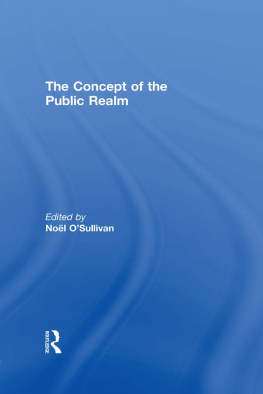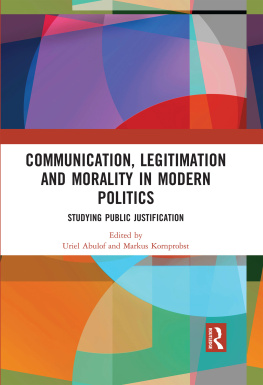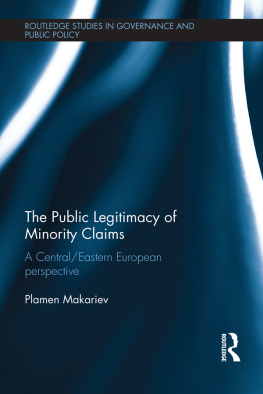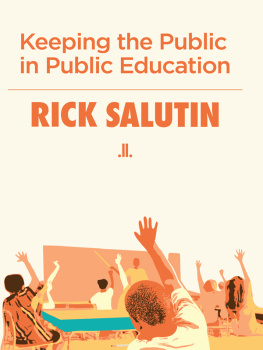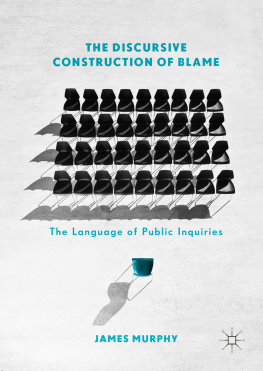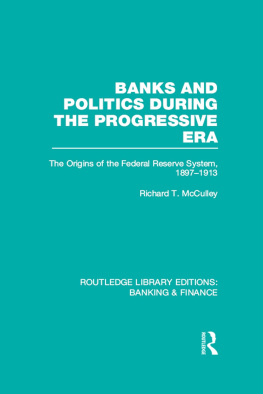NARRATIVES, POLITICS, AND THE PUBLIC SPHERE
Narratives, Politics, and the Public Sphere
Struggles over political reform in the final transitional years in Hong Kong (1992-1994)
AGNES S.M. KU
Hong Kong Polytechnic University
First published 1999 by Ashgate Publishing
Reissued 2018 by Routledge
2 Park Square, Milton Park, Abingdon, Oxon OX14 4RN
711 Third Avenue, New York, NY 10017, USA
Routledge is an imprint of the Taylor & Francis Group, an informa business
Copyright Agnes S.M.Ku 1999
All rights reserved. No part of this book may be reprinted or reproduced or utilised in any form or by any electronic, mechanical, or other means, now known or hereafter invented, including photocopying and recording, or in any information storage or retrieval system, without permission in writing from the publishers.
Notice:
Product or corporate names may be trademarks or registered trademarks, and are used only for identification and explanation without intent to infringe.
Publishers Note
The publisher has gone to great lengths to ensure the quality of this reprint but points out that some imperfections in the original copies may be apparent.
Disclaimer
The publisher has made every effort to trace copyright holders and welcomes correspondence from those they have been unable to contact.
A Library of Congress record exists under LC control number: 98074642
ISBN 13: 978-1-138-32314-8 (hbk)
ISBN 13: 978-0-429-45146-1 (ebk)
For Liu
This book originated from my Ph.D. dissertation entitled The Narrative Making of Public Opinion, which was completed in Fall 1995. When preparing for the dissertation, I remembered embarking on my graduate study at the University of California, Los Angeles (U.C.L.A.) in 1989 with little idea of what I would end up in. The question of what cultural studies or cultural sociology is had never occurred to me to be a significant and interesting one until one day I found myself caught knowing virtually nothing about the subject matter in my first paper for the course Culture and Society. This was my first experience with Jeffrey Alexander in 1990, who later became the chair of my dissertation committee.
The completion of this book would not have been possible but for the intellectual guidance and support from, as well as the critical but sympathetic reading by the members of my dissertation committee - Jeffrey Alexander, Bill Roy and Ivan Szelenyi in the Department of Sociology, and Theodore Huters (who replaced Leo Lee) in the Department of East Asian Studies. During my stay at U.C.L.A., it was the Culture Club fellows who kept reminding me that I was not alone on the road to that flimsy land of culture and that there was still a lot to be explored and done. I am deeply thankful for their intellectual stimulation, nourishment and comradeship. Besides, I would like to thank my current colleagues at the Hong Kong Polytechnic University for their thoughtful comments on the oral presentation of my work in the early stage of the research.
Last but not least, I owe a great deal to my husband, Liu, who has not only shown tremendous understanding and persistent support for me in my academic pursuit throughout the years, but also provided an invaluable basis for sustained intellectual dialogue and bombardment.
In Hong Kong, in the midst of political and cultural changes during the political transition, the public sphere saw much contestation over the moral basis of political practices. Thus far, studies on local politics have focused mostly on the interests, the motivations and the positions of the state elites rather than the cultural and discursive forces that shape their practices. This has the effect of submerging the moral power of public discourse under the waves of top-level politicking. As a point of departure, this book will analyse, with reference to the controversy over Governor Pattens reform proposals in 1992-94, the political and discursive dynamics in the public sphere in Hong Kong in the final transitional years.
The Event
From a formal-legal point of view, the event under study started on 7 October 1992 when Governor Patten released a blueprint for political reform, and then developed through a number of episodes involving intense social conflicts over the legislation of the reform package, and finally ended with its successful legislation on 30 June 1994. Nevertheless, from a socio-cultural point of view, the reform proposals were not only a matter for politicking between the sovereign states or among the politicians but also an event engaging the moral and emotional responses of the local public. The whole event was politically and culturally significant in that it laid out a field of fierce political and cultural struggles in the final transitional years before Chinas resumption of sovereignty over Hong Kong closed the chapter of British colonial rule in July 1997.
Upon their release, the reform proposals were hailed with enthusiastic responses in the public (though they were not without their critics). By means of the proposals, the Governor was believed to be venturing the society into the sacred but prohibited terrain of democratic struggles vis--vis China - its future sovereign power. Many people, especially the democrats, looked upon the Governor as well as his proposals as a symbol of courage, vision and creativity, and therefore revived their hopes for the pro-democracy cause. In narrative terms, the release of the reform proposals developed instantly into a popular heroic romance, with Patten the protagonist seen as embarking on a quest for democratic autonomy vis--vis the Chinese government. Apparently, the final legislation of the reform proposals would signify a victorious ending as a fulfillment of the promises of the heroic-romantic beginning. However, the fact was, as the event developed over time, the public meanings of Patten and his reform proposals changed in the process so much so that the story of heroic romance lost much of its initial colour and emotional charge. The question is, what explained the rather paradoxical development of the event - a victory without a sense of victory - at the end?
In this book, I am going to show how a symbolic force of the public was at work in the public sphere which, through the initial construction of heroic romance, informed, guided and constrained political practices in the process of endowing cultural meanings upon the latter. Upon the release of the reform proposals, despite certain places of incoherence in the narrative construction of the event, the structure of heroic-romance, once consolidated in public discourse, persevered as a discursive force which demanded Patten, his supporters and also the British side to stick to the initial line of action, or they would make a public mockery of themselves. In a significant way, the final legislation of the reform proposals, despite continual delay and attempts for diplomatic concession, testified to the discursive power of the narrative.
At the same time, there took place a process of narrative progression which changed the public meanings of the event in terms of the publics experiences with it. The narrative process could be conceived as one of de-heroization and de-romanticization, taking place through the interplay among the discursive force of the heroic-romantic construction, cultural-political conflicts among the local political actors, and also a number of contingent episodes involving Sino-British politics. Viewed from a wider historical perspective, the disputes over the reform proposals dramatized and intensified the conflicts that had gripped the whole society in the shadow of 1997.


